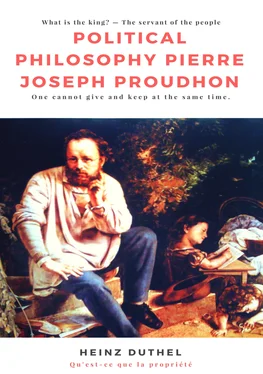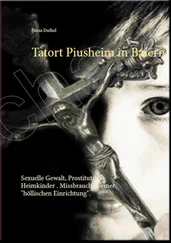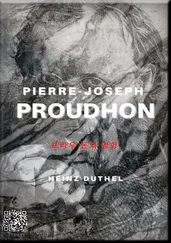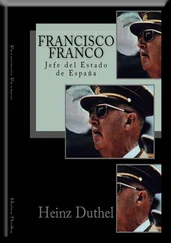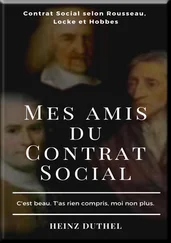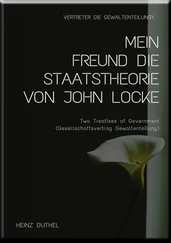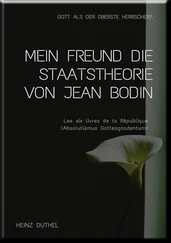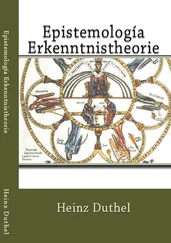In What Is Property? Proudhon wrote:
Property, acting by exclusion and encroachment, while population was increasing, has been the life-principle and definitive cause of all revolutions. Religious wars, and wars of conquest, when they have stopped short of the extermination of races, have been only accidental disturbances, soon repaired by the mathematical progression of the life of nations. The downfall and death of societies are due to the power of accumulation possessed by property.
Joseph Déjacque attacked Proudhon's support for notions of patriarchy, what late 20th century anarchists would term sexism, as quite at odds with anarchist principles.
Towards the end of his life, Proudhon modified some of his earlier views. In The Principle of Federation (1863) he modified his earlier anti-state position, arguing for "the balancing of authority by liberty" and put forward a decentralised "theory of federal government". He also defined anarchy differently as "the government of each by himself", which meant "that political functions have been reduced to industrial functions, and that social order arises from nothing but transactions and exchanges." This work also saw him call his economic system an "agro-industrial federation," arguing that it would provide "specific federal arrangements is to protect the citizens of the federated states from capitalist and financial feudalism, both within them and from the outside" and so stop the re-introduction of "wage labour." This was because "political right requires to be buttressed by economic right."
In the posthumously published Theory of Property, he argued that "property is the only power that can act as a counterweight to the State." Hence, "Proudhon could retain the idea of property as theft, and at the same time offer a new definition of it as liberty. There is the constant possibility of abuse, exploitation, which spells theft. At the same time property is a spontaneous creation of society and a bulwark against the ever-encroaching power of the State." (11 )
He continued to oppose both capitalist and state property. In Theory of Property he maintains: "Now in 1840, I categorically rejected the notion of property...for both the group and the individual," but then states his new theory of property: "property is the greatest revolutionary force which exists, with an unequaled capacity for setting itself against authority..." and the "principal function of private property within the political system will be to act as a counterweight to the power of the State, and by so doing to insure the liberty of the individual." However, he continued to oppose concentrations of wealth and property, arguing for small-scale property ownership associated with peasants and artisans. He still opposed private property in land: "What I cannot accept, regarding land, is that the work put in gives a right to ownership of what has been worked on." In addition, he still believed that that "property" should be more equally distributed and limited in size to that actually used by individuals, families and workers associations. (12 ) He supported the right of inheritance, and defended "as one of the foundations of the family and society." (13 ) However, he refused to extend this beyond personal possessions arguing that " (u )nder the law of association, transmission of wealth does not apply to the instruments of labour." (14 )
As a consequence of his opposition to profit, wage labour, worker exploitation, ownership of land and capital, as well as to state property, Proudhon rejected both capitalism and communism. He adopted the term mutualism for his brand of anarchism, which involved control of the means of production by the workers. In his vision, self-employed artisans, peasants, and cooperatives would trade their products on the market. For Proudhon, factories and other large workplaces would be run by "labor associations" operating on directly democratic principles. The state would be abolished; instead, society would be organized by a federation of "free communes" (a commune is a local municipality in French). In 1863 Proudhon said: "All my economic ideas as developed over twenty-five years can be summed up in the words: agricultural-industrial federation. All my political ideas boil down to a similar formula: political federation or decentralization."
Proudhon opposed the charging of interest and rent, but did not seek to abolish them by law: "I protest that when I criticized... the complex of institutions of which property is the foundation stone, I never meant to forbid or suppress, by sovereign decree, ground rent and interest on capital. I think that all these manifestations of human activity should remain free and voluntary for all: I ask for them no modifications, restrictions or suppressions, other than those which result naturally and of necessity from the universalization of the principle of reciprocity which I propose." (15 )
Proudhon was a revolutionary, but his revolution did not mean violent upheaval or civil war, but rather the transformation of society. This transformation was essentially moral in nature and demanded the highest ethics from those who sought change. It was monetary reform, combined with organising a credit bank and workers associations, that Proudhon proposed to use as a lever to bring about the organization of society along new lines. He did not suggest how the monetary institutions would cope with the problem of inflation and with the need for the efficient allocation of scarce resources.
He made few public criticisms of Marx or Marxism, because in his lifetime Marx was a relatively minor thinker; it was only after Proudhon's death that Marxism became a large movement. He did, however, criticize authoritarian socialists of his time period. This included the state socialist Louis Blanc, of which Proudhon said, "Let me say to M. Blanc: you desire neither Catholicism nor monarchy nor nobility, but you must have a God, a religion, a dictatorship, a censorship, a hierarchy, distinctions, and ranks. For my part, I deny your God, your authority, your sovereignty, your judicial State, and all your representative mystifications." It was Proudhon's book What is Property? that convinced the young Karl Marx that private property should be abolished.
In one of his first works, The Holy Family, Marx said, "Not only does Proudhon write in the interest of the proletarians, he is himself a proletarian, an ouvrier. His work is a scientific manifesto of the French proletariat." Marx, however, disagreed with Proudhon's anarchism and later published vicious criticisms of Proudhon. Marx wrote The Poverty of Philosophy as a refutation of Proudhon's The Philosophy of Poverty. In his socialism, Proudhon was followed by Mikhail Bakunin.
Legacy
Although ultimately overshadowed by Karl Marx, who dismissed him as a bourgeois socialist for his pro-market views, (16 ) Proudhon had an immediate and lasting influence on the anarchist movement, and, more recently, in the aftermaths of May 1968 and after the end of the Cold War.
He was first used as a reference, surprisingly, in the Cercle Proudhon, a right-wing association formed in 1911 by George Valois and Edouard Berth. Both had been brought together by the syndicalist Georges Sorel. But they would tend toward a synthesis of socialism and nationalism, mixing Proudhon's mutualism with Charles Maurras' integralist nationalism. In 1925, George Valois founded the Faisceau, the first fascist league which took its name from Mussolini's fasci.
In addition to being considered a philosophical anarchist, he has also been considered by some to be a forerunner of fascism. (17 ) Historian of fascism, in particular of French fascists, Zeev Sternhell, has noted this use of Proudhon by the far-right. In The Birth Of Fascist Ideology, he states that:
"the Action Française...from its inception regarded the author of La philosophie de la misère as one of its masters. (18 ) He was given a place of honour in the weekly section of the journal of the movement entitled, precisely, 'Our Masters.' Proudhon owed this place in L'Action française to what the Maurrassians saw as his antirepublicanism, his anti-Semitism, his loathing of Rousseau, his disdain for the French Revolution, democracy, and parliamentarianism: and his championship of the nation, the family, tradition, and the monarchy."
Читать дальше
